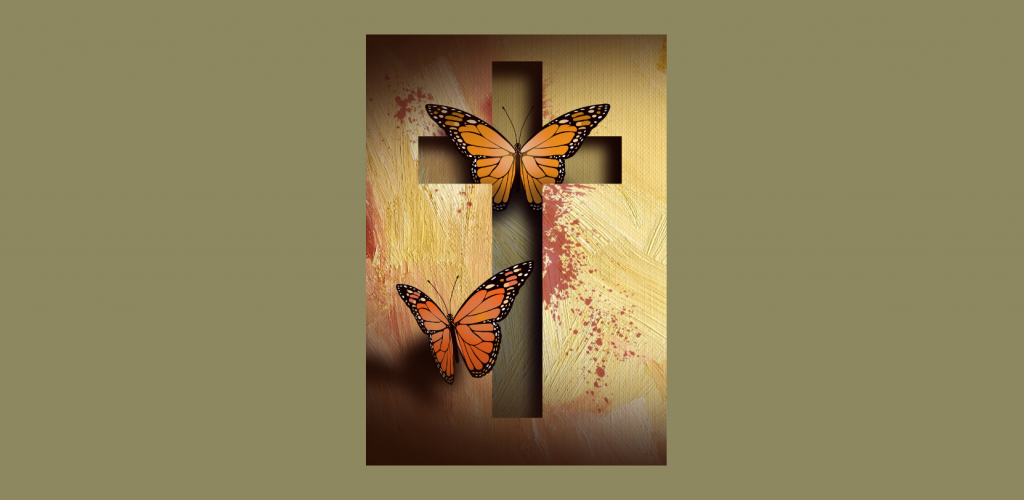
I recently had the great delight of being interviewed by a couple of wonderful young women, Amy Breeze Cooper and Lauren Coglianese Keck, who host the Soul Path Parenting podcast. They had invited me back on their show to speak about the themes of the crucifixion and resurrection as I understand them.
You can listen to the entire interview on the Soul Path Parenting podcast. Below are a few edited excerpts.
If we think about the cross symbolically, it’s a symbol of that whole egoic story, that is, the idea of the other, the idea of enemies, the idea of dominating, controlling, attacking, violence. The cross was a tool of the empire, which is all about domination and control. So if we look at the cross symbolically, it is a symbol of that story of separateness, it’s a symbol of the ego mind.
I might have talked about this when I’ve been on the show before, but in an awakening experience that I had, it culminated with this realization that we are in a dream, that this world we are enacting is a dream, we are enacting our unconscious beliefs. And so things that are happening in the world have a symbolic content, a symbolic meaning.
So in the case of Jesus, someone who saw through the dream, he was like a lucid dreamer on the planet I guess you could say, he’d awakened from that dream state. So how do you snap people out of the idea of of separateness? How do you show them that it’s just a story?
Well, one way is you experience the cross. You go to the heart of the symbol of that story. You enact that story and something happens on the other side of it that totally negates the whole story, which is the resurrection.
So the resurrection is the evidence that the cross is our own fiction, and that separateness and judgment and sin is our own fiction. It’s a story in the human mind, that’s all it is, and he was attempting to help us awaken to our own divine nature.
What happened, though, is that when you’re working with dreams you can interpret them in many different ways, and symbols can be interpreted in many different ways.
So this event of the crucifixion and the resurrection became interpreted by the egoic mind as evidence that we are sinful. Look at this, God’s son had to die because we’re so sinful.
So it got twisted and interpreted according to the consciousness state that Jesus wanted to dissolve. . .
In a sense, you could say that the resurrection is a proclamation of the impotence of the ego story. It is impotent. It has no ultimate power.
I’m remembering this dream that I had a few years ago, where I’m visiting this convent that is closing up. It’s like all the sisters are passing on, the convent is dying, and I think it’s going to be turned into a restaurant. . .
I walk into this room—it’s part of the convent—and this room has grass. It doesn’t have a floor, it has grass, and the grass is covered and the room is filled with butterflies of every conceivable color.
Now I know that the nuns have kept this alive all this time, like at the heart of this tradition is this profound transformation. And it was hidden away. It was nurtured. It was kept safe.
And now I feel like the time is coming when when the butterflies are coming out of that room.
At the core of it all, there is something deeply transformative. And what what can be more symbolic of complete transformation than a butterfly, the total metamorphosis of a creature?
That deep, absolute transformation is at the core of this message, and it has not been understood. It has been misconstrued, again, because it was seen through the lens of the ego mind. But it’s there.
And I feel like more and more people are pulling back the curtain, pulling back the the misunderstandings and the misinterpretations and discovering what is really there, which is absolute transformation.
It is the emergence of really a new human. That is what Christ Consciousness is about. It’s about the emergence of a new humanity. And we’re in the time when this is happening, this consciousness is arising.







